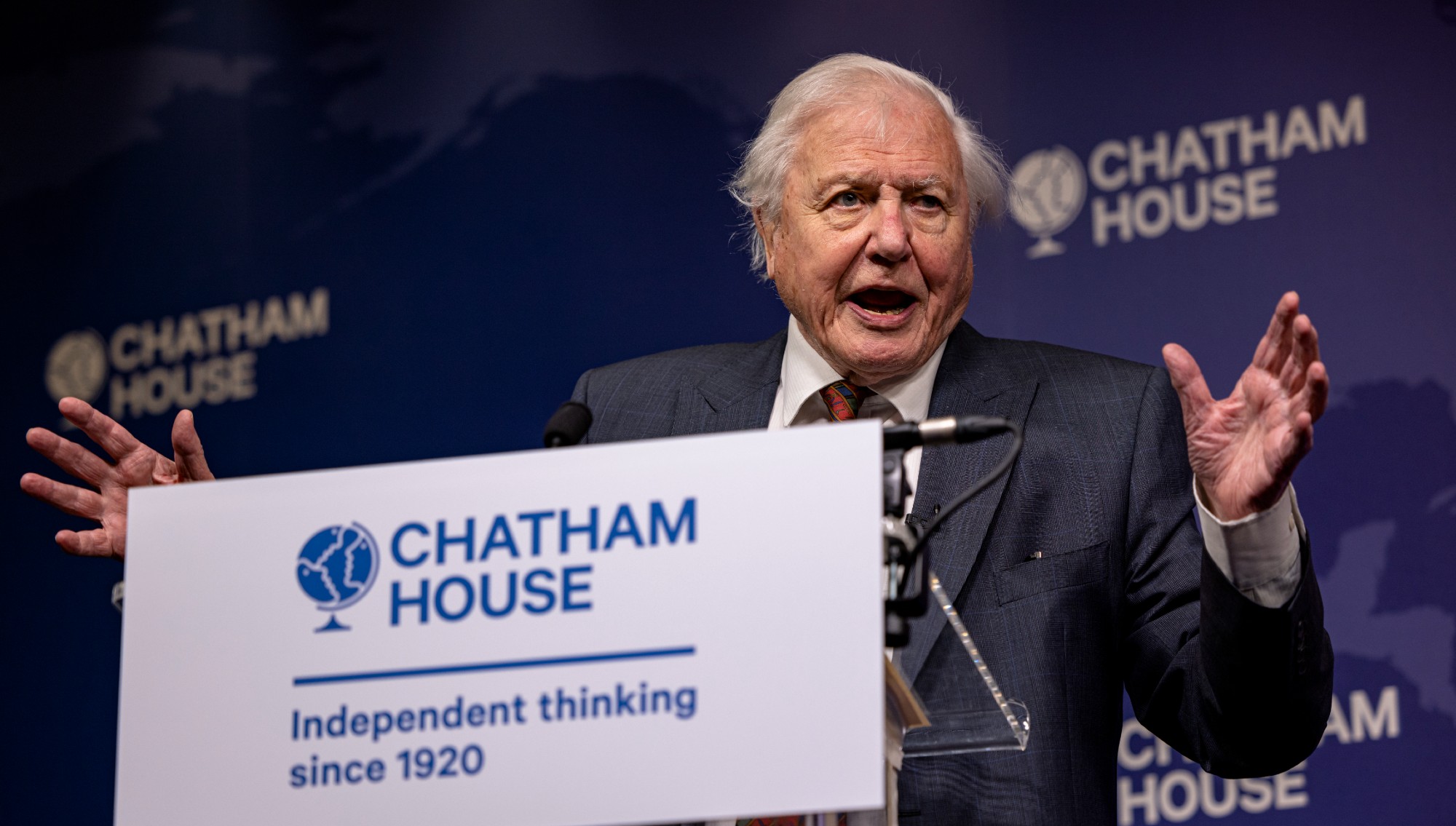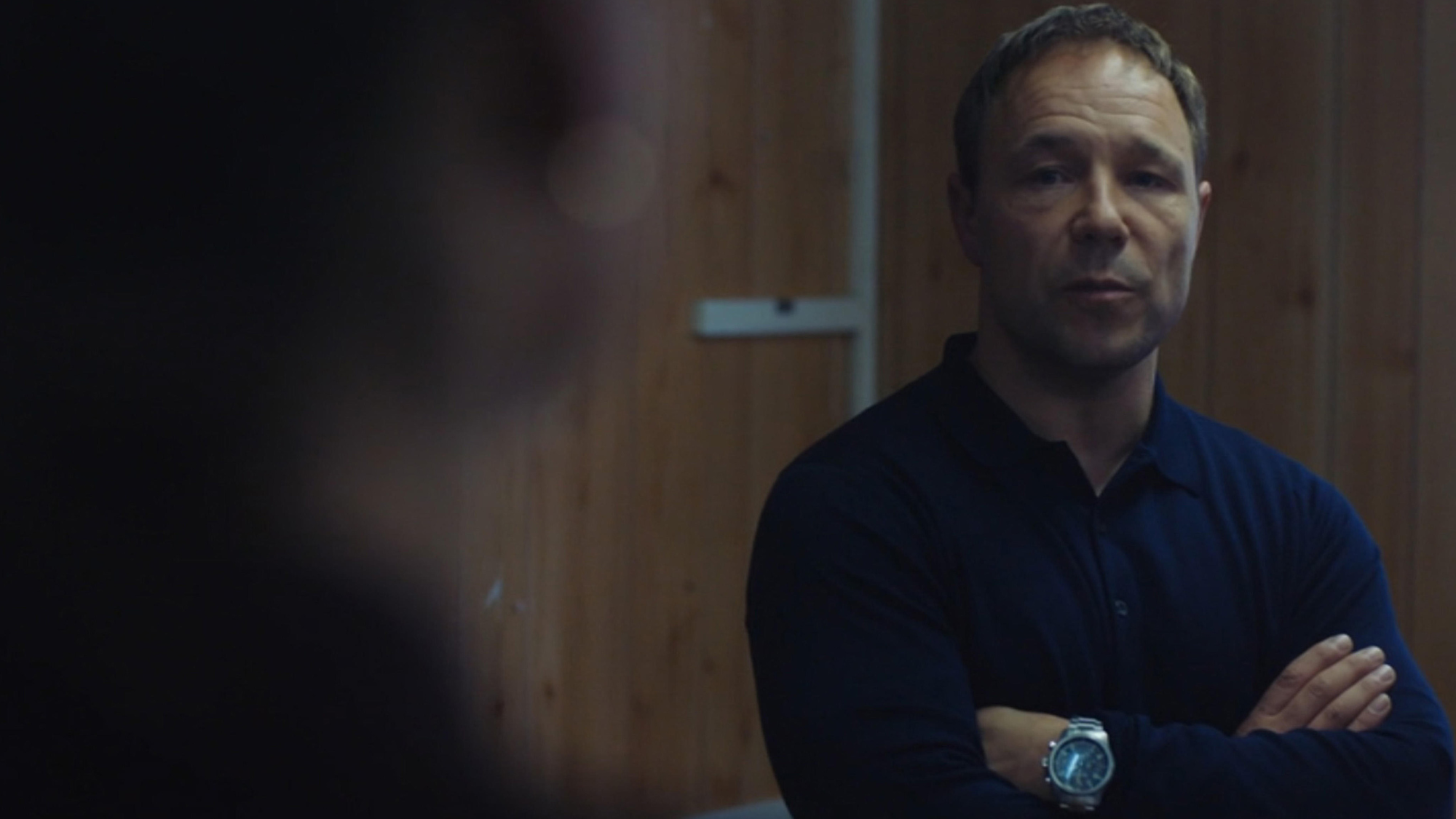Burning Desire: from those wonderful folks who brought you lung cancer…
In this revealing documentary, tobacco chiefs seem disturbingly reasonable in their pursuit of profit

A free daily email with the biggest news stories of the day – and the best features from TheWeek.com
You are now subscribed
Your newsletter sign-up was successful
Why won't cigarette companies die? Despite countless good reasons to quit the habit, the tobacco industry still sells six trillion cigarettes a year, resulting in profits of £30 billion – and five million deaths.
If airlines or supermarkets killed even a fraction of that number of their customers they would be out of business in weeks. Yet big tobacco seems to be in rude health.
Burning Desire, Peter Taylor's two-part documentary for BBC2, sets out to challenge and explain that remarkable resilience.
The Week
Escape your echo chamber. Get the facts behind the news, plus analysis from multiple perspectives.

Sign up for The Week's Free Newsletters
From our morning news briefing to a weekly Good News Newsletter, get the best of The Week delivered directly to your inbox.
From our morning news briefing to a weekly Good News Newsletter, get the best of The Week delivered directly to your inbox.
Taylor has spent 40 years confronting the tobacco industry, watching as it retreated from deception and denial into public silence. Now, he says, it is on the front foot again, fighting back against anti-smoking laws, expanding into the developing world and finding new, more socially acceptable ways to deliver its products.
This documentary, and British American Tobacco's willingness to contribute to it, is in itself evidence of renewed confidence. To the tobacco executives, it was an opportunity to put the PR plan into action – and, despite Taylor's dogged attempts to corner them, they will probably be pleased with the results.
The BAT executives give a masterclass in public relations jujitsu, neutralising their inquisitor with a show of studied reasonableness. They meekly acquiesce to point after point until Taylor is the one who seems unreasonable.
They concede that cigarettes cause cancer – but then, in the face of such overwhelming evidence, what choice do they have? They are happy too to condemn the actions of their predecessors, knowing that they can do so with no risk to the bottom line, and happier still to look forward to a future in which their profits come from low-risk electronic cigarettes.
A free daily email with the biggest news stories of the day – and the best features from TheWeek.com
But the present remains more challenging. It is clear that the policy of concession stops just before the point at which it might affect today's bottom line.
No one from BAT will accept, for example, that the company has an interest in encouraging more people to smoke. What little marketing they are allowed is, they insist, aimed purely at luring current smokers from rival brands. And they are shocked, shocked that each year 200,000 children aged 11 to 15 take up the habit.
The anti-smoking campaigners are having none of it. "They need children to start smoking to replace the smokers they lose," says one. "The more successful they are," says another, "the more people will die."
Compare those short, clear, declarative sentences with the soporific language of Kingsley Wheaton, BAT's unimpeachably reasonable corporate affairs director.
"British American Tobacco is committed to a progressive future," he says. "We are different because we are at the forefront of driving that tobacco harm-reduction future."
The precise meaning of the words might elude even the most attentive viewer, but the overall message is clear: relax, we're here to stay, and everything's going to be fine.
Part 2 of Burning Desire is on BBC2 next Thursday at 9.30pm
Holden Frith tweets at twitter.com/holdenfrith
Holden Frith is The Week’s digital director. He also makes regular appearances on “The Week Unwrapped”, speaking about subjects as diverse as vaccine development and bionic bomb-sniffing locusts. He joined The Week in 2013, spending five years editing the magazine’s website. Before that, he was deputy digital editor at The Sunday Times. He has also been TheTimes.co.uk’s technology editor and the launch editor of Wired magazine’s UK website. Holden has worked in journalism for nearly two decades, having started his professional career while completing an English literature degree at Cambridge University. He followed that with a master’s degree in journalism from Northwestern University in Chicago. A keen photographer, he also writes travel features whenever he gets the chance.
-
 The environmental cost of GLP-1s
The environmental cost of GLP-1sThe explainer Producing the drugs is a dirty process
-
 Greenland’s capital becomes ground zero for the country’s diplomatic straits
Greenland’s capital becomes ground zero for the country’s diplomatic straitsIN THE SPOTLIGHT A flurry of new consular activity in Nuuk shows how important Greenland has become to Europeans’ anxiety about American imperialism
-
 ‘This is something that happens all too often’
‘This is something that happens all too often’Instant Opinion Opinion, comment and editorials of the day
-
 Turner: The Secret Sketchbooks – a fascinating portrait of the great painter
Turner: The Secret Sketchbooks – a fascinating portrait of the great painterThe Week Recommends BBC2 documentary examines the rarely seen sketchbooks of the enigmatic artist
-
 Dianarama examines the ‘extraordinary scale’ of Martin Bashir’s lies
Dianarama examines the ‘extraordinary scale’ of Martin Bashir’s liesThe Week Recommends Andy Webb’s book is packed with ‘astonishing’ allegations surrounding Princess Diana’s 1995 Panorama interview
-
 Eurovision faces its Waterloo over Israel boycotts
Eurovision faces its Waterloo over Israel boycottsTalking Point Five major broadcasters have threatened to pull out of next year’s contest over Israel’s participation
-
 Unforgivable: harrowing drama about abuse and rehabilitation
Unforgivable: harrowing drama about abuse and rehabilitationThe Week Recommends 'Catastrophic impact' of abuse is explored in 'thought-provoking' series
-
 How to go on your own Race Across the World
How to go on your own Race Across the WorldThe Week Recommends The BBC hit show is inspiring fans to choose low-budget adventures
-
 The top period dramas to stream now
The top period dramas to stream nowThe Week Recommends Heaving bosoms and billowing shirts are standard fare in these historical TV classics
-
 David Attenborough at 99: a 'radical' voice for climate action
David Attenborough at 99: a 'radical' voice for climate actionIn The Spotlight In his new film 'Ocean', TV's best-known naturalist delivers his strongest message yet
-
 Stephen Graham's best TV and film roles
Stephen Graham's best TV and film rolesThe Week Recommends From Line of Duty to Adolescence, these are the prolific actor's must-watch projects